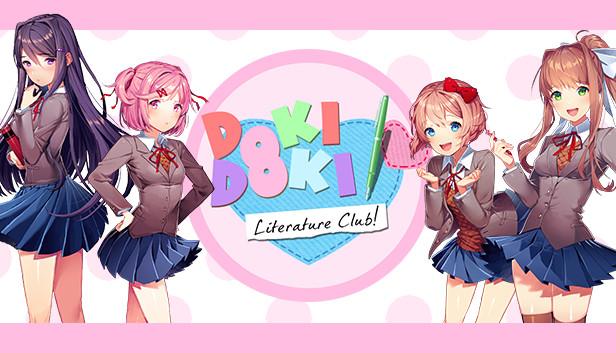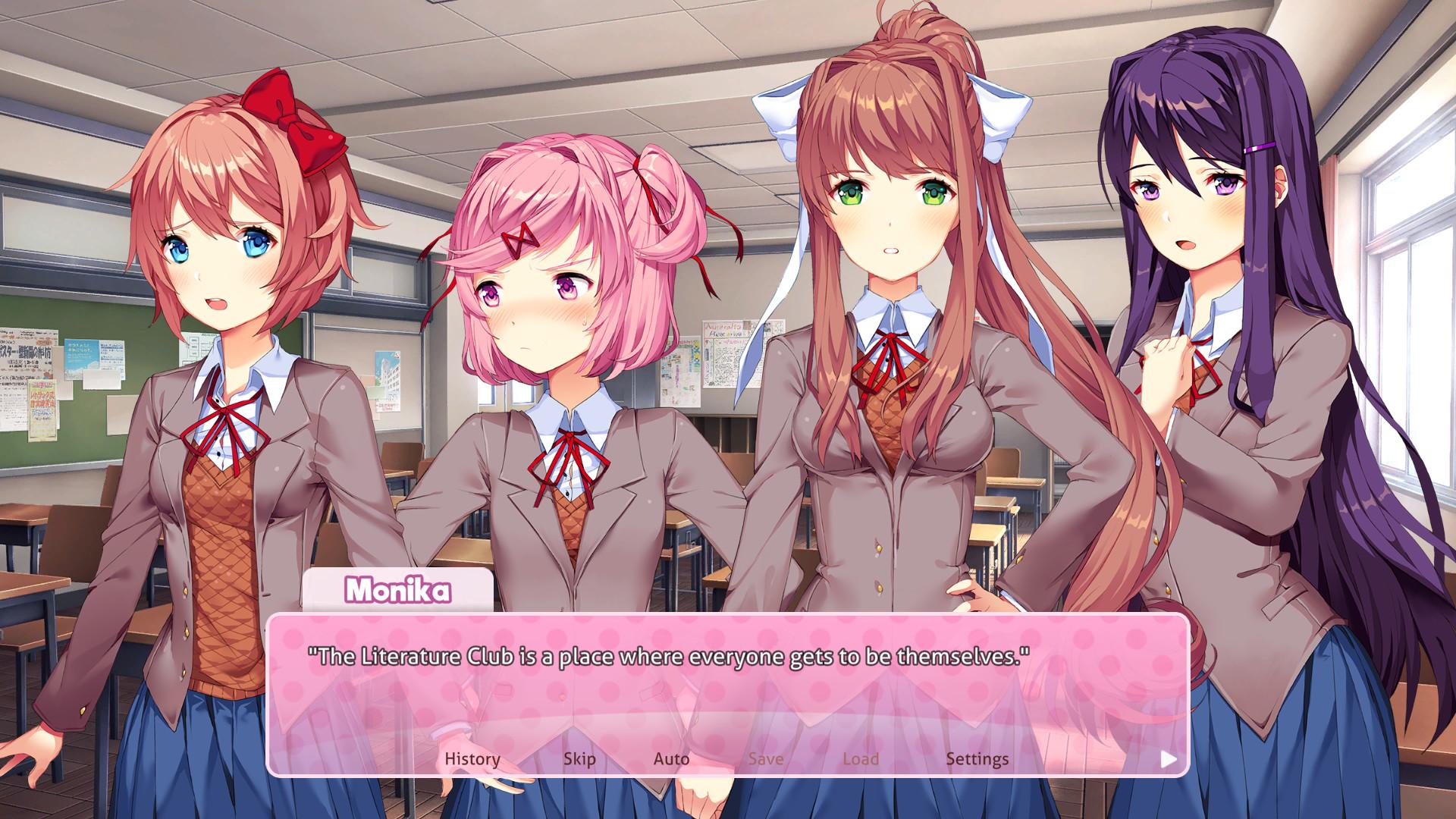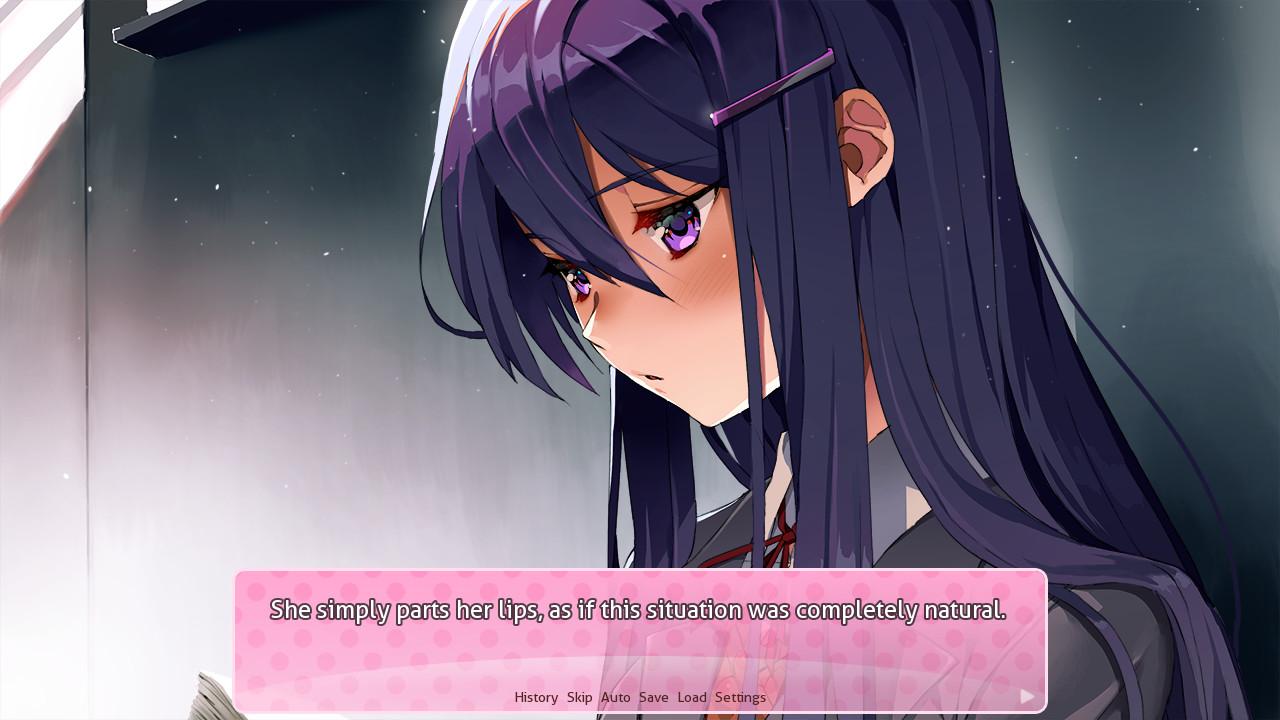
I played “Doki Doki Literature Club” (DDLC), a visual novel game developed by Team Salvato, as I was intrigued by the game’s potential to address gender dynamics and challenge traditional narratives. However, upon delving into the game, I discovered both commendable elements and areas where DDLC falls short in intertwining feminist theories.
The target audience is primarily gamers interested in visual novel experiences. There are also elements of psychological horror. It appeals to players who are interested in interactive storytelling, character development, and exploring unconventional narratives. The game’s themes and mature content make it more suitable for older audiences, typically teenagers and adults. The game’s platforms are PC, Mac, Linux!
As for formal elements, the players are individuals interested in interactive storytelling and visual novel gameplay. The procedures are interacting with characters, making choices, and progressing through the game’s narrative. The boundaries are the game’s linear storyline, limited interactions, and prescribed character arcs. The objective is uncover the dark secrets of the Literature Club and navigate relationships with its members. There are many outcomes; there are multiple endings based on the player’s choices, ultimately revealing the game’s meta-narrative.
DDLC employs several mechanics to engage players, including dialogue choices, writing poems, and uncovering hidden aspects of the story. The dynamics involve building relationships with characters and witnessing their mental and emotional struggles. The game’s aesthetics combine vibrant visuals with eerie undertones, effectively immersing players in a seemingly innocent narrative that gradually unravels.

While DDLC attempts to subvert traditional visual novel tropes and engage with psychological horror, it falls short in fully embracing feminist theories. The game perpetuates certain gender stereotypes and, at times, sensationalizes mental health issues. The character Sayori, for example, displays symptoms of depression but is primarily defined by her inability to articulate her feelings for the protagonist, reinforcing the “manic pixie dream girl” trope.
Additionally, DDLC’s central twist involving the character Monika challenges notions of agency and consent. While the game could have used this plot device to delve deeper into discussions of power dynamics and control, it ultimately falls into the trap of portraying Monika as a villain rather than examining the circumstances that led to her actions.
To improve DDLC from a feminist standpoint, the game could engage with intersectional feminism, exploring issues beyond gender, such as race, sexuality, and disability. This expansion would allow for a more nuanced examination of the characters’ identities and experiences.
Moreover, employing feminist theories could involve providing agency and character development for all the female characters, rather than solely focusing on the protagonist’s interactions with them. This would help dismantle the “harem” narrative often found in visual novels and allow for more nuanced portrayals of female characters.
The game could also address mental health issues more responsibly by providing adequate resources, raising awareness, and avoiding the romanticization or exploitation of such themes. By consulting with mental health professionals during the game’s development, Team Salvato could ensure a more accurate and compassionate portrayal of characters experiencing mental health challenges.

DDLC has the potential to be a groundbreaking game that challenges traditional visual novel conventions and explores feminist themes. However, it falls short in fully embracing feminist theories and perpetuates certain gender stereotypes. By incorporating intersectional feminism, granting agency to female characters, and addressing mental health issues responsibly, DDLC could provide a more inclusive and thought-provoking gaming experience. By doing so, the game could foster critical discussions about gender



